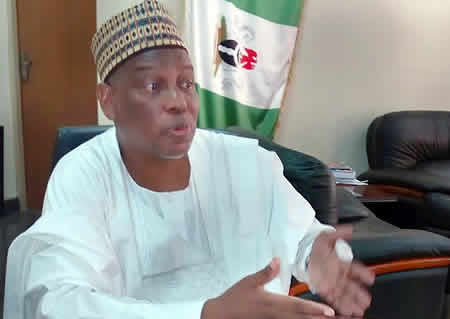34 states, FCT yet to access 2024 UBE matching grant — UBEC
According to Hamid Bobboyi, the Executive Secretary of the Universal Basic Education Commission, 34 states and the FCT have not yet received the 2024 Universal Basic Education matching fund.
This was revealed by Bobboyi on Monday in Abuja when the commission was visited by the Senate Committee on Education (Basic and Secondary).
He pointed out that out of all the states that received the 2024 matching fund, only Katsina and Kaduna have used the first two quarters.
Bobboyi added that basic and junior secondary education still have a big problem with unclaimed UBE grants, and he provided details about matching grants that were accessible between 2020 and 2024.
Only two states, Abia and Ogun, have not applied for the 2020 UBE matching grant; the remaining thirty-four states and the FCT have done so. So far, 33 states and the FCT have made use of it for the year 2021; only Ogun, Abia, and Imo have not.
“The grants were made available to 29 states and the FCT in 2022; however, Abia, Adamawa, Anambra, Ebonyi, Imo, Ogun, and Oyo have not yet received theirs. From the first to the fourth quarter of 2023, 25 states took use of the grants, he added.
In addition, Bobboyi mentioned that the 2024 and 2023 Appropriation Acts each provided the commission with N263.04 billion and N103.29 billion, or 2% of the CRF, respectively.
Additionally, he mentioned that N219.20 billion, or 83.33% of the budget for 2024, had already been released, and that N103.29 billion had been entirely released for 2023.
Bobboyi boasted that the North West zone had achieved 100% in the ranking of states’ performances in obtaining the UBE funding as of October 31 per geopolitical zone.
After that came the South-South zone at 97.92%, followed by the North Central at 97.76%, the North East at 97.57%, the South West at 92.28 %, and the South East at 85.37 %.
He listed limited funding for basic education at the federal, state, and municipal levels, as well as a shortage of qualified educators, as major obstacles confronting the panel.
The high number of students who are not in school and the failure to comply with the federal government’s order for the teaching of history in elementary schools are also significant concerns, Bobboyi added.
The difficulties were voiced by senators on the Senate Committee on Education. Senator Victor Umeh bemoaned the fact that, although receiving more funding, a disproportionate percentage of youngsters in the north do not attend school.
Senator Sunday Katung, speaking for the next generation, advocated for history to be taught again in elementary school.
Senator Lawal Usman, who was previously the committee’s chair, praised UBEC’s work but encouraged the commission to enhance its operational framework and put the committee’s recommendations into action.




